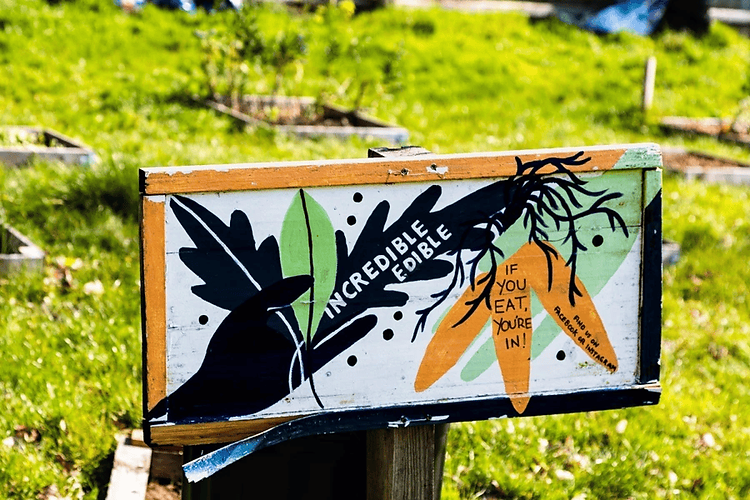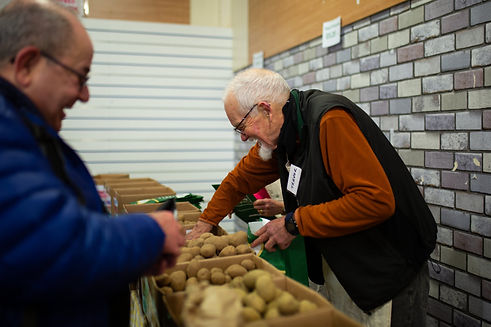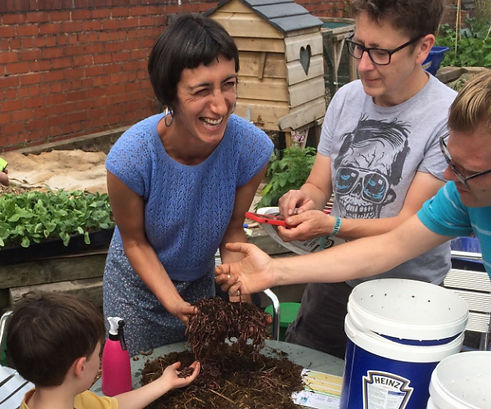
Growing our Own

How Communities Are Transforming Green Spaces
Eating what we grow connects us to nature, the seasons, and the land in a meaningful way. When we cultivate our own food, we gain a deeper appreciation for the resources that go into everything we eat.

Incredible Edible: Growing Communities Through Food
This international movement has an inspiring vision, to create kind, confident, and connected communities through the power of food. The UK’s Incredible Edible website offers valuable resources and expert advice on how to start your own local food-growing group.
Broxtowe, Nottinghamshire
Leading the way in Nottinghamshire, Incredible Edible Beeston is transforming bare green spaces into thriving food gardens for everyone to enjoy. With an inspiring vision and an active social media presence, this group is helping tackle climate change while fostering community connections.
High Peak, Derbyshire
Incredible Edible New Mills is turning unused spaces into vibrant community gardens, where local people can learn about and enjoy gardening. They grow food for both people and wildlife, while encouraging the sharing of surplus seeds, plants, produce, and garden supplies.
“This uplifting mantra of hyperlocal, accessible, inclusive community food growing provides a hopeful approach to addressing the climate crisis from the bottom up.”
Derbyshire & Nottingham: Community-Led Growing Initiatives
Grassroots Wirksworth (Derbyshire Dales)
Grassroots Wirksworth (formerly Transition Wirksworth) has built a Growers Community Garden, a welcoming space where volunteers meet to cultivate food and strengthen local ties.
Sherwood Community Food Gardens (Nottingham)
Sherwood Community Food Gardens (formerly Transition Sherwood) provides opportunities for local residents to learn how to grow fruits and vegetables in a friendly and supportive environment. Their gardens not only promote sustainable food growing but also offer mental and physical well-being benefits through time spent outdoors in nature.

Transition Chesterfield: Potato Day
Every January, Transition Chesterfield hosts its renowned Potato Day, a much-anticipated event where gardeners can purchase a variety of seed potatoes at trade prices. It’s a perfect event for beginner growers, offering:
-
A wide range of potato varieties.
-
Onion, shallot, and garlic bulbs.
-
Bean and pea seeds.
Organising Potato Day requires a big team effort, and volunteers are always welcome. The group is happy to share tips on running a successful event, so why not get involved?
Transition Buxton’s Dispersed Community Orchard (High Peak)
In High Peak, Transition Buxton has developed a Dispersed Community Orchard, planting 100 fruit trees in over 15 locations in the town. Apples, pears and damsons are free for locals to pick. Maintained by a dedicated team of volunteers, each tree is sponsored by individuals or the council and marked on a map of the town. What a great idea!
Join the Local Food Movement!
Whether you're passionate about community gardening, reducing food waste, or learning to grow your own food, these initiatives are proof that small actions can create big environmental and social impacts.
Who Knew Worms Could Do So Much?
Already composting your food waste? Great! But did you know a worm farm in your garden or even under your sink, can cut waste, fight climate change, save water, and enrich your plants?
The Magic of Worm Farming
The Urban Worm in East Bridgford, Rushcliffe promotes worm farming as a simple, sustainable solution. Plants love worm manure for its dense, nutrient rich qualities, its ability to store water and resist plant pests and diseases.
As Charles Darwin said: “Worms are more powerful than the African elephant and more important to the economy than the cow.”
Find sustainable food events near you.
(Thanks to Anna de la Vega from the Urban Worm for image)
